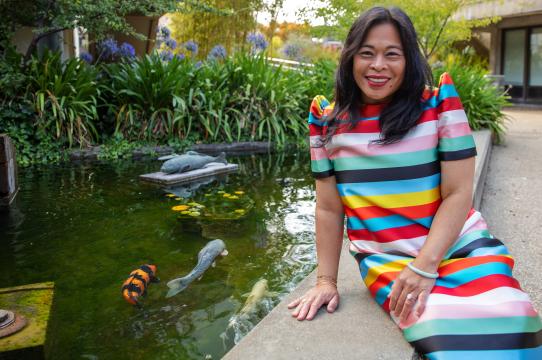June 29, 2023
Dear Arts Division:
As the Supreme Court decision strikes down Affirmative Action in college admissions, my personal support of diversity, equity and inclusion efforts throughout the Arts Division at the University of California at Santa Cruz remains fervent.
The beautiful abundance that our community represents, and the diversity of knowledge we bring, remains critical to the mission of the university. As a young Filipinx American student with few resources in pre-209 California, I was enabled by programs of Equal Opportunity to access housing and other resources to stay in school and to succeed. Affirmative Action policies enabled my access to higher education, securing my personal freedom and independence, as it has for countless numbers of racially subjugated students. Today’s decision fails to acknowledge how racism, white supremacy, and inequitable privilege deter academic success for students of color who also experience other forms of oppression and inequity.
We in higher education must now work even harder and with even more determined purpose to decolonize our curriculum and call out this decision that ensures harmful outcomes.
Diversity, Equity and Inclusion (DEI) efforts continue to be crucial in removing barriers to academic and professional development opportunities for all our students, and we must continue to welcome everyone into environments that allow all to thrive. Interestingly, the Supreme Court opinion exempts military academies from banning race considerations in admissions decisions, acknowledging that it would be detrimental for the institution’s cohesiveness and morale if officers did not look like the rank and file, ironically acknowledging that race-conscious decision-making does work, and in fact creates leadership models that reflect the diversity of the general population.
As leader of the Arts Division, I remain committed and today galvanized to make higher education accessible to everyone. Let’s continue to work together towards a better and more just and livable future now.
Dean Celine
HARMONIOUS CHANGES AT UCSC: THE NEW SOUND OF DEI IN THE ARTS
Prepared by Karlton Hester
Associate Dean for Diversity, Equity and Inclusion, Professor of Music, and Director of Digital Arts and New Media
“I'm no longer accepting the things I cannot change... I'm changing the things I cannot accept.” —Angela Y. Davis
One of the fundamental qualities of nature is its unified diversity, interconnectedness, and multi-stratified systems of balance. The big bang theory is a scientific theory of creation suggesting that all things are interconnected and made of the same substance. Resonance occurs when the reinforcement or prolongation of sound occurs by reflection from a synchronous vibration of a neighboring object. Harmonious vibrational series (or overtone series) are the result of “family” frequencies forming chords of related partials that vibrate simultaneously when a fundamental “parent” tone reverberates. Thus, interconnectedness in nature results within many vibrating systems and objects found within existence that have a brand of self-similarity involved where small pieces of them (for example, clouds, waves, ferns, etc.) look similar to the whole series of fractal-like objects.
Therefore diversity, equity, and inclusion reflect nature’s tendency toward biodiversity, evolutionary creative process, and unifying vibratory relationships that invigorate vital ecosystem functions and the arts personify nature’s pressive tendencies. That is in stark contrast to the disruptions, confusion, and destruction often provoked by the irrational coercion systems aimed only at domination. At its best creative collaboration reflects resonance, harmonic and rhythmic unity, as well as tendency towards ingenuity. In social dynamics contemplating creatively about diversity, equity, and inclusion can help steer communities toward share resources and services across society with a sense of responsibility, sustainable progress, and mutually beneficial purposes that ensure impartial treatment for all global citizens.
Despite decades of legal and social reform aimed at reducing discrimination, bigotry, and exclusion on campuses, inequality remains a significant problem. To achieve meaningful diversity, equity, and inclusion we have to begin by asking ourselves fundamental questions within each of our departments and programs. How will we begin changing this problematic set of debilitating issues at this particular point in time and with a sense of urgency? What achievable goals are required initially to support efforts directed toward promoting greater diversity, equity, and inclusion in our campus’ future? How might we activate, multiply, and fortify diversity pipelines in order to meet and sustain the DEI goals toward which we aspire? How do we create a process of ongoing assessment that assures that DEI plans created maintain their precise goals, directions, and timelines? How will we identify the perceptual, tangible, and psychological processes in our environment that incessantly impact the way individuals interact with People of Color, women, LGBTQ+, people with disabilities, and those who are demographically dissimilar from them? The Arts Division has initiated departmental plans to accomplish such goals and aspirations.
ART DEPARTMENT DIVERSITY EQUITY AND INCLUSION (DEI)
The Art Department understands that diversity is integral to our achievement of excellence. We are committed to cultivating, supporting, and promoting the expression and creation of culturally diverse experiences and perspectives within our department. We see DEI as essential to an art education, preparing students at UCSC for creative participation in the world.
DANM DEI PLAN: CATALYZING CHANGE IN DANM, THE ARTS, AND CAMPUS-WIDE
DANM plans concrete steps for empowering under-represented minorities and expanding diversity, equity, inclusion, and anti-racism in the arts and throughout the UC Santa Cruz Community. Our most important collective goal, therefore, is to vastly increase Underrepresented Minority (URM) numbers at UCSC in general, and not just in DANM or the Arts Division. The Catalyzing Change BIPOC Fellowship ensures competitive offers to talented BIPOC applicants with excellent portfolios. In 2023 Black Students of California United (BSCU) Conference will be held at UCSC bringing hundreds of Black students to UCSC seeking to build a strong community connection, leading to increased enrollments in the Arts. DANM’s annual Afrofuturism festival features screenings, panel talks, concerts, dance and multimedia performances that bring together high profile BIPOC guests with faculty and students.
FILM & DIGITAL MEDIA: TOWARDS DIVERSITY, EQUITY, INCLUSION AND STRUCTURAL CHANGE
As a settler-colonial institution, we recognize the resilience and survival of Native inhabitants and BIPOC people worldwide. We affirm that we have much to learn from their experiences and the survival strategies and, ultimately, commit to reparative justice, reparations, and return of land stolen from Indigenous communities in California and throughout the Americas. We work to acknowledge, address and remove obstacles to Native participation and engagement in our institution of higher learning. We are working towards creating a safe and reparative space for all people and communities who have not been and are not now fully represented in our department, our curriculum, and our ways of working.
HISTORY OF ART & VISUAL CULTURE DEI PLAN
The History of Art and Visual Culture (HAVC) faculty affirms its commitment to recognizing, addressing, and combating all forms of racism, ethnic oppression, and discrimination. The department collectively seeks to empower students, colleagues, and our campus community toward the goal of creating an inclusive, respectful, and equitable environment. Therefore, as a department, we share an ethical obligation to create a racially and ethnically unbiased environment that addresses the unique forms of bias that affect our diverse and multi-ethnic community.
MUSIC DEPARTMENT: DIVERSITY, EQUITY AND INCLUSION PLAN
Music is in stage three of a four-stage DEI process. Stage one involved a four year engagement among faculty to change music’s curriculum to be more globally inclusive and nationally representative. The proposed revisions were approved in the spring of 2020 and launched in the fall of 2020. Stage two, published on our website in the spring of 2020, involved an explicit statement of solidarity with BIPOC communities and a commitment to anti-racist practices, pedagogies and culture. We are currently in stage three which involves implementing our revised curriculum and our expressed commitments in our departmental pledge. Stage four is to identify what more we need to do.
DIVERSITY, EQUITY AND INCLUSION IN THE DEPARTMENT OF PERFORMANCE, PLAY & DESIGN
The Department of Performance, Play & Design’s Diversity, Equity & Inclusion Plan pertains to faculty, office staff, production staff, undergraduate and graduate students. The plan includes objectives with associated recommended actions for achieving them. All objectives are accompanied by measures of success that can be tracked and analyzed over time. In the third week of fall quarter, 2021, PPD’s demographic analysis showed that of 545 undergraduate students (129 in Theater and Dance, 416 in AGPM), some 31.6% identify as being from underrepresented minority groups.
Our Shared Values. In order to articulate our shared values in reference to DEI issues, the Department published its Statement on Social Equity, Inclusion, and Justice, which reads: UC Santa Cruz is a Hispanic Serving and Asian American, Native American, and Pacific Islander serving Institution (HSI/AANAPISI) that is located on unceded territory of the Awaswas-speaking Uypi Tribe. We acknowledge the harm that settler colonization has caused and acknowledge ways that we as a higher education institution and department have benefited from and perpetuated his harm. We are committed to performance, scholarship, and pedagogy that affirms Indigenous sovereignty and transforms the relationships between land and bodies, hearts and minds. As a collective working to integrate this perspective across our curricula, practices and processes, we unequivocally acknowledge that Black Lives Matter.
SUMMARY
Both the struggles and silver linings of the COVID-19 pandemic has dramatically changed global citizens’ lives, outlooks, and relationships over the past two years. In some ways it has fostered important new ways for self-assessment and understanding in the arts and DEI awareness is one such outcome. DEI focus should certainly be directed towards diverse representation and not simply on diversity of thought. Those in a community who don’t see their identities reflected in their social environment feel a lower sense of belonging, and that leads to higher frustration and lower productivity. The UCSC Arts sees DEI cultivation as is a new frontier that leads to a wellspring of creativity, contentment, enhancement of general prosperity, and the production of increased artistic innovation. Therefore, we aspire to develop a pervasive level of consciousness within the Arts Division that elevates us to a position of becoming a model of Diversity, Equity and Inclusion (DEI) in the 21st century.


